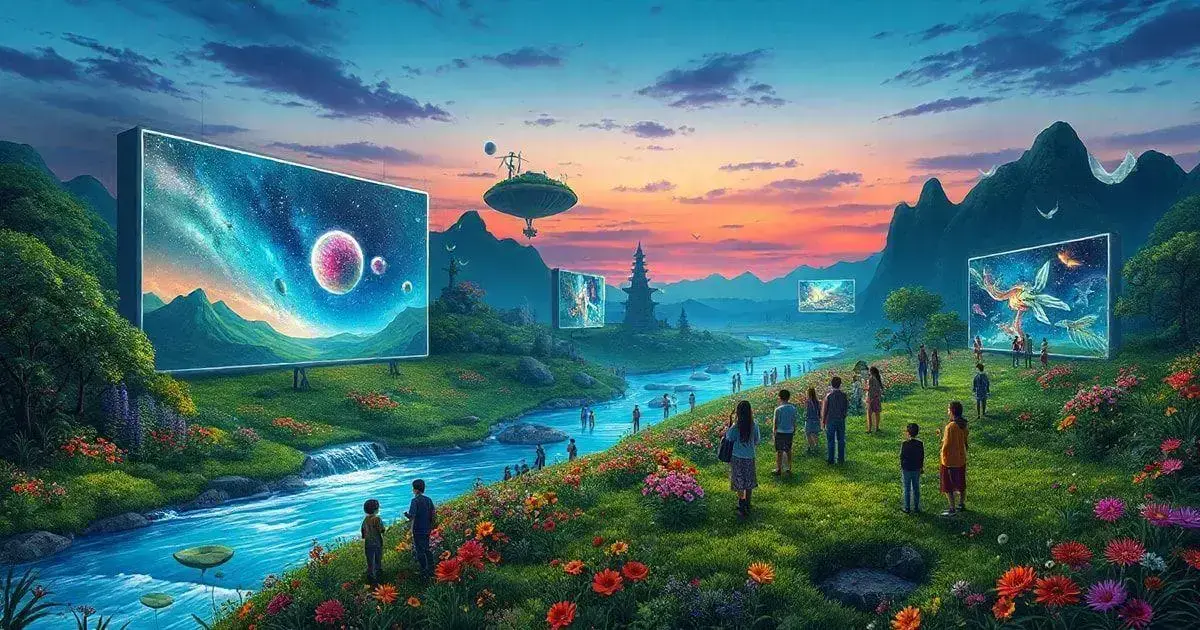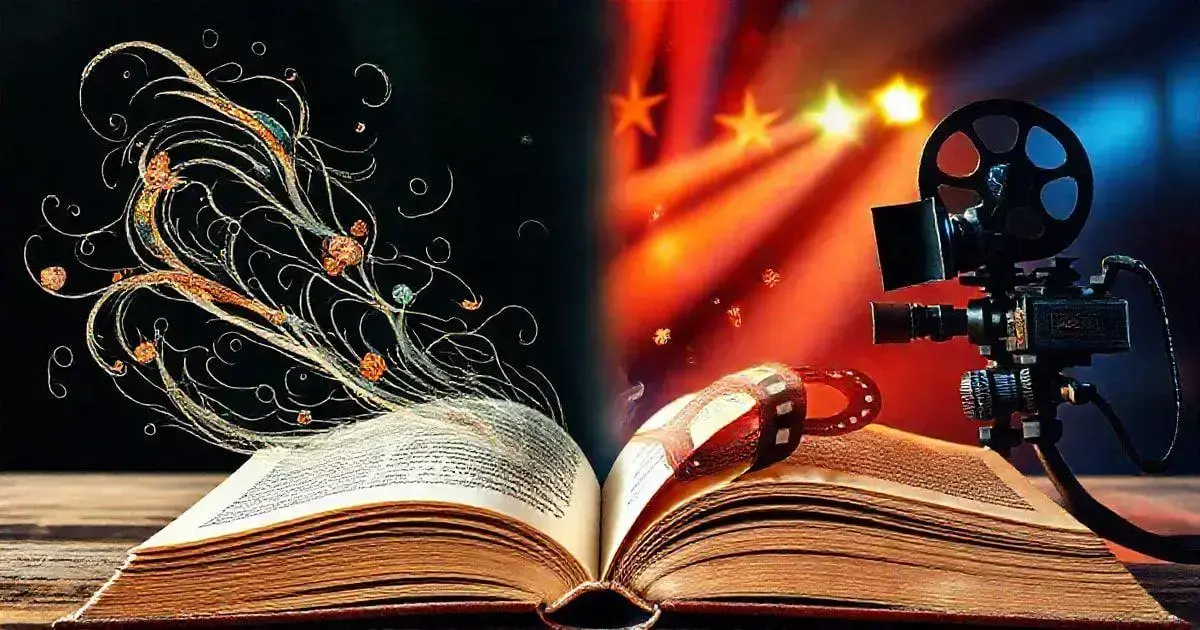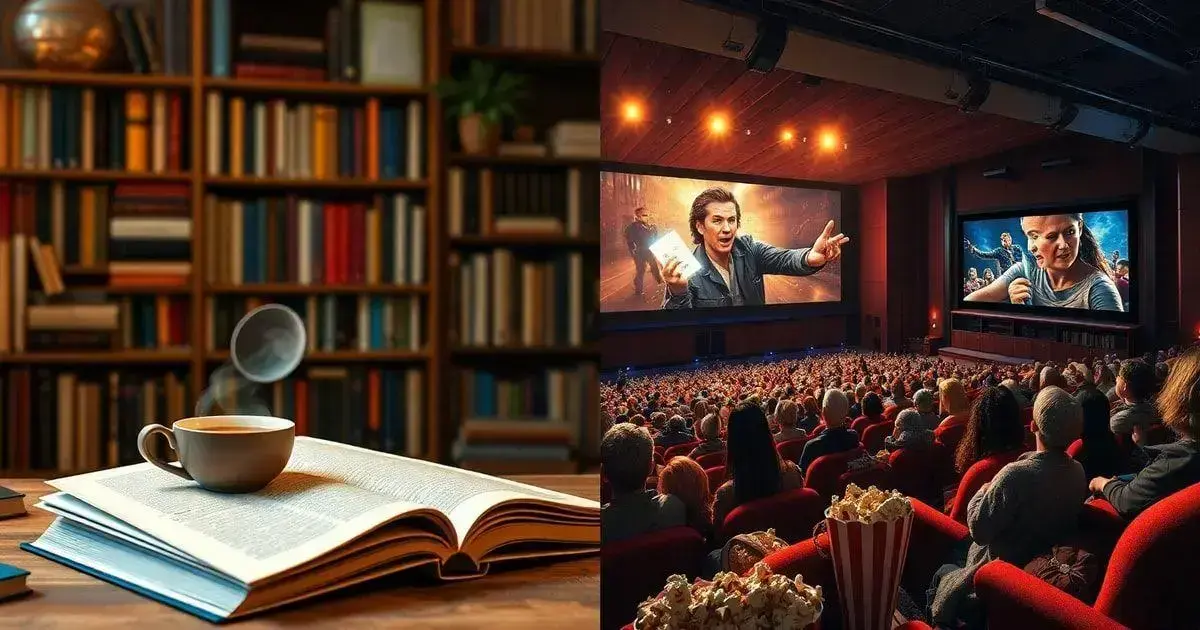Índice
Why books are better than movies is a question that has sparked numerous debates among avid readers and cinema enthusiasts alike.
While films offer visual spectacles and immediate gratification, books provide a rich tapestry of detail, character insights, and imaginative freedom.
The Depth of Character Development
Many readers cherish the depth of character development found in books. Books allow the reader to explore characters more intimately, providing inner thoughts, backgrounds, and motivations that film adaptations often simplify or overlook. This in-depth exploration creates a stronger emotional connection between the reader and characters, as they can understand their struggles and growth over time.
In novels, authors have the luxury of time and space to develop intricate backstories, which can enhance the narrative. Characters in books can evolve in complex ways, often reflecting real-life struggles more closely. This gradual development engages readers, making them invested in the characters’ journeys.
Conversely, movies typically present characters with limited screen time, necessitating a more concise portrayal. While filmmakers strive to recreate the essence of characters, they may sacrifice depth for pacing and visual impact. Ultimately, this can lead to a less fulfilling understanding of their true nature.
Thus, the richness of character development manages to captivate and resonate with book lovers, often explaining why they prefer reading over watching film adaptations.
Imagining Beyond the Screen

One of the most appealing aspects of reading is the ability to imagine beyond the screen. Books invite readers to create their own mental images of characters, settings, and events, allowing for a unique personal experience. This imaginative power fosters creativity and provides a deeper engagement with the story.
When a reader encounters a well-described scene or character, they can envision it in their own way. This personal interpretation is often more meaningful than the visual representation seen in films. Each reader brings their own experiences, values, and emotions into the story, enhancing their connection to it.
Moreover, the absence of visual constraints in books allows for limitless possibilities. Readers can explore exotic landscapes, diverse cultures, and intricate plots unlike anything portrayed on screen. This sense of freedom nurtures a more immersive experience, drawing the reader into the narrative in ways that films may not.
In contrast, movies, while visually stunning, can restrict the viewer’s imagination. Directors interpret the story through their lens, which may differ from how a reader perceives it. This can diminish the personal relationship formed during the reading experience.
Ultimately, the power to imagine beyond the screen is a crucial factor in why many people prefer books over movies. It enriches the storytelling experience, making each reading journey uniquely theirs.
The Impact of Personal Interpretation
Personal interpretation plays a vital role in how readers connect with stories. When readers engage with a book, they use their imagination to project their feelings and experiences onto characters and situations. This creates a unique relationship with the narrative that is often lost in film. Books allow for a personalised experience that challenges the reader to think deeply about themes and morals presented in the story.
In books, the description of events or characters is often vague or open-ended, inviting readers to fill in the gaps with their own insights and emotions. This process of interpretation can lead to differing opinions among readers about the same storyline or character motivation. Such varied interpretations enrich discussions about the book, fostering a community of readers who share their perspectives.
In contrast, movies tend to provide a specific, visual interpretation of characters and events. While this can be captivating, it often limits the viewer’s ability to interpret the story independently. The director’s vision dominates the audience’s experience, leaving less room for personal thought and feeling.
Therefore, the impact of personal interpretation in books is profound. It allows readers to discover new meanings, enhancing the overall engagement with the story and why they may prefer reading over watching movies.
Storytelling Techniques in Books vs. Movies

Storytelling techniques in books and movies differ greatly, shaping how narratives are conveyed and experienced. Books are better at exploring character thoughts and emotions, providing a deep dive into inner conflicts and complexities. This creates stronger emotional bonds with characters compared to the condensed portrayals often seen in movies.
Books also excel in pacing, allowing for slower, more deliberate storytelling that builds suspense and tension. Books are better at drawing readers into the plot and characters over time, whereas movies, constrained by time, often rely on faster pacing that can result in surface-level storytelling.
The narrative structure in books offers unparalleled flexibility. Authors can experiment with perspectives and timelines, giving readers the freedom to piece together the story at their own pace. While films occasionally attempt non-linear storytelling, their need for clarity often limits these approaches. In this regard, books are better for those seeking intricate and layered narratives.
Ultimately, while both forms have their strengths, books provide a richer, more immersive storytelling experience for those who value depth and complexity.
Cultural and Emotional Connections

Cultural and emotional connections shape how we experience stories in books versus movies. Books are better at diving deep into cultural contexts, offering detailed backgrounds that help readers understand characters and their societal frameworks. This depth fosters empathy as readers immerse themselves in diverse cultures and perspectives.
Through rich descriptions, books bring cultural nuances to life, creating a more profound emotional connection with characters. Readers often reflect on their own lives and cultures while engaging with these stories, showcasing why books are better for exploring complex traditions and lifestyles.
Movies, while visually impactful, tend to present cultural elements more succinctly. While films can evoke powerful emotions through imagery and music, they often lack the intricate details that define a culture and its effects on individuals.
In conclusion, books excel in enriching understanding over time, while movies captivate audiences with instant emotional engagement. Both mediums offer valuable experiences, but books provide unmatched depth and introspection.
Why Books Triumph Over Movies
In summary, the discussion around why books are better than movies highlights key factors that enrich our experiences with literature.
The depth of character development allows readers to forge emotional connections, while the freedom of imagination invites unique interpretations of the narrative.
Books also present a slower pace, giving time for reflective engagement, while cultural and emotional connections are expansive, enhancing understanding of diverse perspectives.
On the other hand, while movies provide visual spectacle and immediate emotional engagement, they often sacrifice depth and personal connection.
Ultimately, investing time in books can yield a richer, more fulfilling experience that resonates long after the final page is turned, solidifying their status as a preferred medium for many.
